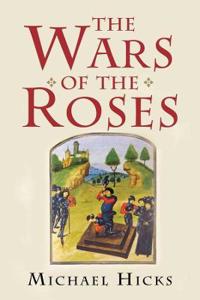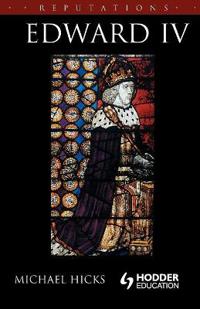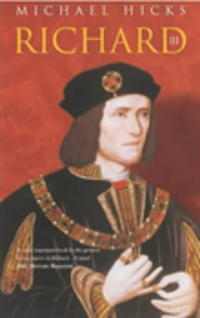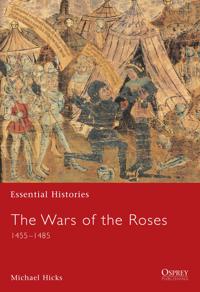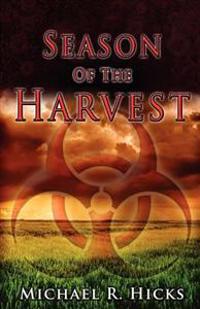Warwick the Kingmaker (Häftad)
avMichael Hicks, Deborah Ed. Hicks
ISBN: 9780631235934 - UTGIVEN: 200204This book illuminates Warwicka s character and motivation, showing that he was an emotional, charming, and popular man with a strong sense of family loyalty. It is the first full study of this compelling figure within the context of political life in late medieval England.[...]
Bill Hicks (Storpocket)
avKevin Booth, Michael Bertin
ISBN: 9780007198306 - UTGIVEN: 2006-04Written by Bill Hick's lifelong friend, producer, and co-creator, Kevin Booth offers the inside story into the man who was only along for the ride for a tragically short time, yet left an indelible mark on comedy enthusiasts and freethinkers everywhere. Bill Hicks: Agent of Evolution offers a rare f[...]
Sixties Rock (Häftad)
avMichael Hicks
ISBN: 9780252069154 - UTGIVEN: 200008Unlike their rock 'n' roll predecessors, many rock musicians of the mid-sixties came to consider themselves as artists, as self-conscious makers of a new sonic medium. Sixties Rock offers a provocative look at these artists and their innovations in two pivotal rock genres: garage rock and psychedeli[...]
Christian Wolff (Häftad)
avMichael Hicks, Christian Asplund
ISBN: 9780252078965 - UTGIVEN: 201208In this first interpretive narrative of the life and work of Christian Wolff, Michael Hicks and Christian Asplund trace the influences and sensibilities of a contemporary composer's atypical career path and restless imagination. Written in full cooperation with Wolff, including access to his papers,[...]
The Wars of the Roses (Pocket)
avMichael Hicks
ISBN: 9780300181579 - UTGIVEN: 201204The Wars of the Roses (1455-85) were a major turning point in English history. But the underlying causes for the successive upheavals have been hotly contested by historians ever since. In this original and stimulating new synthesis, distinguished historian Michael Hicks examines the difficult econo[...]
Edward IV (Häftad)
avMichael Hicks
ISBN: 9780340760062 - UTGIVEN: 200405Edward IV was the first Yorkist king. He ruled (with only a brief hiatus) for 22 years, ended the Wars of the Roses triumphantly in 1471, and died in his bed - not invariably the place of death for a medieval monarch. The best general of his day, he destroyed the House of Lancaster. At a very diffic[...]
English Political Culture in the Fifteenth Century (Häftad)
avMichael Hicks
ISBN: 9780415217644 - UTGIVEN: 200208English Political Culture in the Fifteenth Century is a new and original study of how politics worked in late medieval England, throwing new light on a much-discussed period in English history. Michael Hicks explores the standards, values and principles that motivated contemporary politicians, and t[...]
Richard III (Häftad)
avMichael Hicks
ISBN: 9780752425894 - UTGIVEN: 200308Richard III has been written off in history as one of England's evil kings. His usurpation of the throne from his nephew Edward V and then subsequent generations of pro-Tudor historians ensured his fame as the disfigured murderer portrayed by Shakespeare. In the twentieth century, Richard found his [...]
The Family of Richard III (Inbunden)
avMichael Hicks
ISBN: 9781445621258 - UTGIVEN: 2015-03The Wars of the Roses were quarrels within the Plantagenet family, of which Richard's dynasty, the house of York was one branch. The house of York won the first war, with Richard's elder brother becoming king as Edward IV. In 1483, after decades of family infighting, there was a sudden violent resol[...]
The Wars of the Roses 1455-1485 (Häftad)
avMichael Hicks
ISBN: 9781841764917 - UTGIVEN: 200304The Wars of the Roses featured sixteen invasions, four successful; six times kings lost their thrones. This book explores why those invasions occurred and kept occurring. Destruction and devastation were minimal, barely affecting the day to day routine of the civilian population, yet the Wars were l[...]





